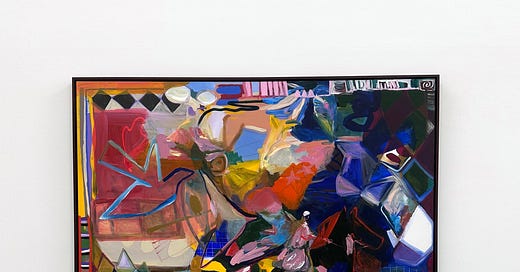On a quiet brick-laid back street in Greenwich, London, I tilt my chin up to the sky and soak up the rare British sun. A slight, momentary heave of light kisses my face. I ask — tell me, to the ether, what shall I write about this week?
“The Earnest Gremlin,” the sky replies.
The Earnest Gremlin?
”But… I don’t really know the true meaning of that word” I respond.
“Yes, find out” says the imaginary voice in my head. (Hey, I’m a lady speaking to the sky — it’s all wacky from this point on.)
So first step: find out what “earnest” really means. I know when we use it — when someone is earnest, we mean they’re sincere — but what else? What does it really hold? What are the bones and the breath of this word?
earnest (adjective)
Definition: resulting from or showing sincere and intense conviction.
To be genuine. To mean it. To feel it.
Then I got curious.
Where did this word come from? Who first whispered it?
Turns out, earnest has been around a long, long time. It stems from the Old English eornoste — meaning serious, zealous, sincere — and the Proto-Germanic ernustuz, which carried with it a feeling of struggle, purpose, and gravity.
In Old High German, it even meant “strife” or “fight.” Which makes sense. Earnestness can feel like a fight. A sacred one. The fight to stay true, to show up real, to care in a world that often prefers indifference.
Perhaps that's why earnestness so often shows up quietly but powerfully in folklore — never named as the main magic, but always there in the character who wins by heart. Cinderella, the overlooked underestimated daughter. Jack, the boy with too-small hands who climbs the beanstalk anyway.
These characters don’t win by brute strength or cunning — they win because they believe. Because their intentions are true. Because they’re earnest.
“So what am I meant to do with this information?”
That was my second question.
And the deeper I went, the more I realised that the answer already existed before I asked.
- Just like the world was already here before we asked how was it made.
- Just like atoms danced as waves and particles before we knew to wonder how they moved.
Maybe that’s what earnestness is too:
Trusting the answer is already there, and having the courage to say: “I don’t know yet, but I will.”
To be earnest is not to pretend to know. It is not to posture or rush.
It’s to hold your hands open — sincerely, awkwardly, bravely — while the answer finds its way to you.
To stand in the space between question and clarity, and stay soft. Not because you’re passive, but because you’re honest. Mature.
Rooted in care.
And maybe, in the waiting — the quiet sunlit waiting — something in you begins to align with the answer that’s always been.
The earnest gremlin doesn’t have all the words. But she means what she says. And sometimes, that’s the most divine place to begin.
From The Factory >
Habibi Shine (2024), acrylic on canvas, 123 × 153 cm — currently on view at LAS BEGINS, the first group show at LAS Gallery, London.
I hosted a drawing workshop for Daisy London’s Apollo collection launch and designed a series of bespoke postcards inspired by sunshine, radiance, and protection.





Prompts >
ACTION:
Write a letter from your earnest self to your future self — the version of you who already knows how this all works out.
ASK SOMEONE:
When’s the last time you didn’t know what to do, but showed up anyway?
JOURNAL:
What question are you carrying this week — and can you write down the version of it without needing the answer just yet?
SELF-CHECK:
Where have I been pretending to know when I could gently admit I don’t know — yet?
Musings >
“The only true wisdom is in knowing you know nothing.”
- Socrates
“You have to act as if it were possible to radically transform the world. And you have to do it all the time.”
- Angela Davis
“Mystery is not the absence of meaning, but the presence of more meaning than we can comprehend.”
- Dennis Covington
“I have no special talents. I am only passionately curious.”
- Albert Einstein





